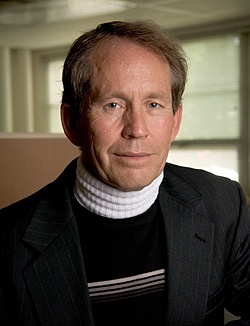May 5 2009
Physicist James C. Bergquist, a Fellow at the National Institute of Standards and Technology (NIST) whose research helped usher in the age of optical atomic clocks, has been elected a member of the National Academy of Sciences. Election to the academy is considered one of the highest honors that can be accorded a U.S. scientist or engineer. New members are elected by current members in recognition of their distinguished and continuing achievements in original research.
 James C. Bergquist. Credit: NIST
James C. Bergquist. Credit: NIST
Bergquist is a world leader in laser science and optical frequency standards, the basis for the next generation of atomic clocks. Bergquist’s experimental clock based on a single mercury ion (electrically charged atom) is the world’s most precise timepiece, and would neither gain nor lose 1 second in 2 billion years. The mercury ion clock was the first clock to have a smaller measurement uncertainty than atomic clocks based on cesium atoms, which are still the international standard. (See “Mercury Atomic Clock Keeps Time with Record Accuracy.”) Bergquist has pioneered a long string of advances in measurement science with broad applications, including the development of lasers with the world’s narrowest linewidth (band of emitted frequencies) and techniques required for quantum information processing, among many other breakthroughs.
A Colorado native, Bergquist has worked at the NIST Boulder Labs since 1978. He received his doctorate in physics from the University of Colorado. Bergquist’s previous honors include three Department of Commerce gold medals, the American Physical Society’s Herbert P. Broida Prize and Arthur Schawlow Prize in Laser Science, NIST’s Edward Uhler Condon Award and Samuel Wesley Stratton Award, the Optical Society of America’s William F. Meggers Award, and the IEEE’s I. I. Rabi Award. He joins seven other NIST scientists who are members of the NAS, a private organization of scientists and engineers established in 1863 dedicated to the furtherance of science and its use for the general welfare. See the NAS release, “72 New Members Chosen By Academy.”